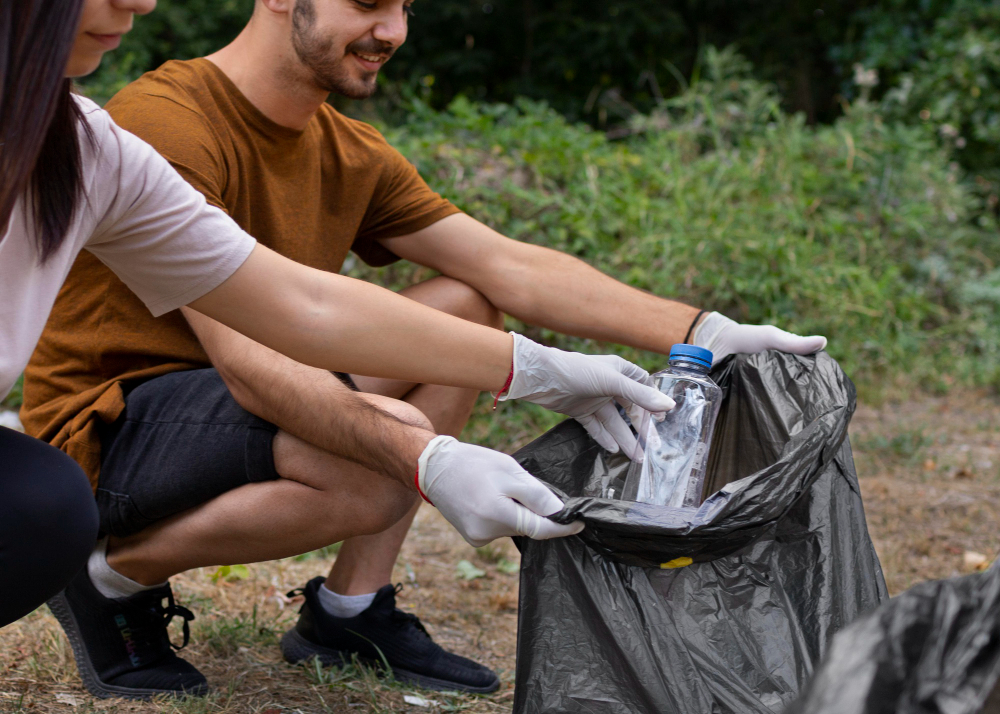Efficient recycling and landfill waste reduction depend on effectively sorting household waste. Separating materials into three distinct groups should be your first step: general waste (non-recyclable items), organic waste (food scraps and garden clippings), and recyclables (paper, cardboard, glass, plastic, and metal). Recyclable materials should be kept dry and clean; do not combine them with food or drinks. If at all possible, compost natural garbage, and discard hazardous waste—such as batteries or electronics—safely at facilities designated for that purpose. Sorting can be made simpler at home by using designated bins. For bigger clearances, take into account services like Cheap Skip Hire Manchester to handle rubbish sensibly and guarantee appropriate recycling or disposal.
Recognize the Various Types of Waste
Understanding the numerous types of waste produced at home is essential to nicely sorting household waste. Waste is frequently divided into 3 classes: dangerous waste, trendy trash, organic or biodegradable trash, and recyclables. Paper, plastic, metallic, and glass are examples of materials which can be recyclable. Garden debris and scraps of food are examples of organic waste.
Non-recyclable substances like used tissues and packaging are included in popular garbage. Batteries, electronics, and chemical materials are examples of dangerous trash. Understanding the distinctions makes it less difficult to guarantee that every type of rubbish is dealt with correctly and disposed of in an eco-friendly way.
Contents
Put Up Several Bins at Home
The installation of containers with clear labels is one of the best methods for sorting domestic waste. Maintain distinct containers for general waste, organic waste, and recyclables. You can also include bins for toxic and e-waste if you have room. To prevent confusion for every member of the household, use colour-coded containers or labelling.
Clean and Rinse Recyclable Items
One major factor in the rejection of recycling is food contamination. A pizza field blanketed in oil or a yoghurt cup complete with leftovers, for instance, could make a whole batch of recycling nugatory. Before putting plastic cans, jars, and packing containers inside the recycling bin, usually provide them with a brief washing. The effectiveness and protection of recycling vegetation are more desirable when using clean wastes.
Keep cardboard and paper separate.
One of the only gadgets to recycle is cardboard and paper, but they want to be kept dry and segregated from different waste. Paper that has been moist or contaminated by way of meals is usually now not recyclable. To preserve space, flatten cardboard programs and position smooth paper, periodicals, newspapers, and envelopes in a unique paper recycling bin.
Tissues and paper towel rolls should not be mixed with recyclable paper because they are typically polluted and should be disposed of in composting or general rubbish if they are uncoated and chemical-free.
Sort Plastics in Line with Local Regulations
Because of the various kinds utilized in the packaging, plastic trash can be perplexing. Although numerous plastics can be recycled, not all of them are approved in every area. To find out which plastic codes are accepted, contact the nearest recycling agency or council. Plastics are typically identified by numbers on their labels. Better recycling results are guaranteed when plastics are sorted appropriately and labels or caps are removed as needed.
At-Home Composting of Organic Waste
Composting is an alternative to landfilling organic matter, such as garden clippings, coffee grinds, eggshells, and fruit and vegetable peels. You may turn organic waste into nutrient-rich compost for your plants by setting up a compost bin or pile in the garden. Even in modest residences or dwellings, bookish or kitchen composter bins are excellent alternatives.
Take Care When Managing Hazardous Waste
Batteries, paint, cleaning supplies, and electronics are examples of hazardous waste that should never be disposed of with ordinary garbage from the home. Both people and the environment may be harmed by these substances. For advice on how to properly dispose of them, get in touch with your local waste management authority and store them separately. Hazardous garbage can be dropped off or collected on specific days in numerous cities and towns.
Handle E-Waste Properly
Because of the way fast technology is growing, electronic rubbish, or “e-waste,” is turning into a bigger issue. It is not appropriate to get rid of vintage cell phones, laptops, chargers, or other kinds of electronics with regular trash. These things need to be dealt with carefully because they include dangerous substances and valuable metals. E-waste is accepted for appropriate disposal by a large number of electronic merchants and recycling centres.
Handle Glass Waste Differently
Glass needs to be handled separately even though it is a completely recyclable product. Clean bottles and jars before discarding them. Sorting glass by colour is a requirement for some recycling programs, but not for others. Verify local regulations at all times. Glass presents safety dangers when mixed with different recyclables, particularly if it is fractured. Certain items, such as light bulbs, window glass, and mirrors, won’t be recyclable and must be disposed of through specific garbage initiatives.
Final words
One of the first steps in developing a sustainable destiny is properly isolating household waste. At first, it can appear difficult, but eventually, integrating waste control techniques into ordinary sports will become second nature. There are severe smooth yet powerful techniques to lower trash at home, which include labelling boxes, washing recyclables, composting organic waste, and using nearby recycling facilities.
Visit The Incest Flix for more informative blogs.


